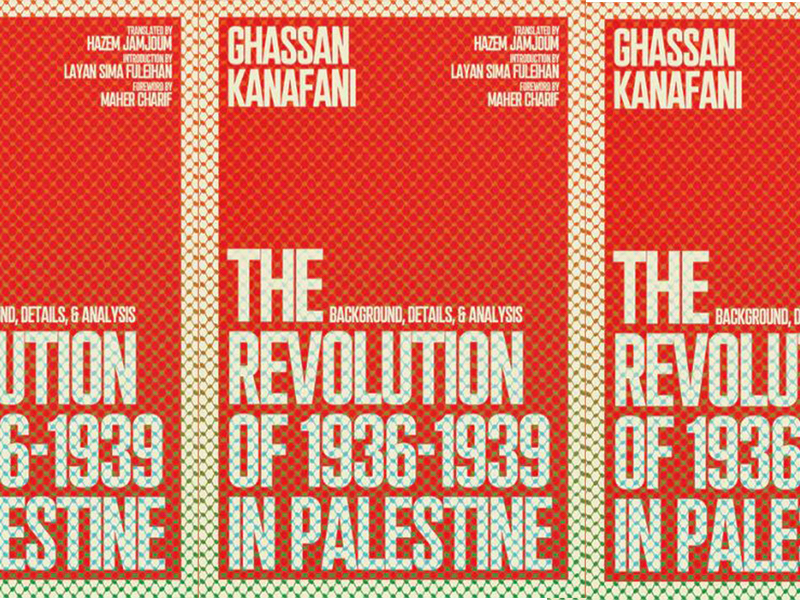
This event will be a discussion based around the latest English edition of Ghassan Kanafani's The Revolution of 1936–1939 in Palestine published by 1804 Press. The new edition was translated by Hazem Jamjoum with an introduction from Layan Sima Fuleihan and an afterword from Maher Charif.
In this book, Kanafani presents a concrete analysis of the mass uprisings against Zionism, and for independence from British colonialism, that took place in Palestine from 1936 to 1939. Kanafani examines the economic, political, social, and cultural conditions that contributed to, and limited, the anti-colonial struggle in this period.
Ghassan Kanafani was a political activist, artist, and writer. He took part in founding the Popular Front for the Liberation of Palestine (PFLP), and is the accomplished author of many short stories, novels, plays, articles, and studies.
Copies of the book will be available to purchase at this event via Maqam Books.
Meet the speakers
Hazem Jamjoum is a writer and translator who spends his weekdays as an audio archivist and curator at the British Library. The translation of Ghassan Kanafani's classic essay on the 1936-1939 Revolution is his first published book-length translation, and his translation of Maya Abu Alhayyat's novel No One Knows their Blood Type, is due to be published by the Cleveland State University Poetry Center in the Fall of 2024.
Bashir Abu-Manneh is Head of the School of Classics, English, and History at the University of Kent and Reader in Postcolonial Literature. Abu-Manneh is the author of The Palestinian Novel: From 1948 to the Present (2016) and Fiction of the New Statesman, 1913-1939 (2011). He has also edited a collection of essays on Edward Said – as literary critic and postcolonial theorist – entitled After Said: Postcolonial Literary Studies in the Twenty-First Century (2019).
Mai Taha is an Assistant Professor in Human Rights at the Department of Sociology, LSE. Previously, she was a Lecturer in Law at Goldsmiths, University of London, and Assistant Professor in International Human Rights Law and Justice at the American University in Cairo (AUC). Mai has written on international law and empire, human rights, labour movements, class and gender relations, and care work and social reproduction.
Join the conversation on Twitter using #LSEMiddleEast
From time to time there are changes to event details so we strongly recommend checking back on this listing on the day of the event if you plan to attend.